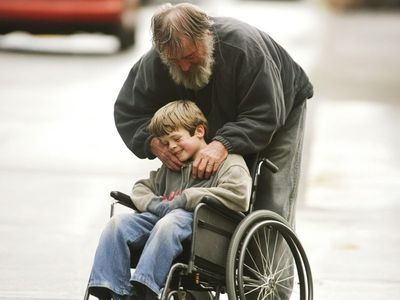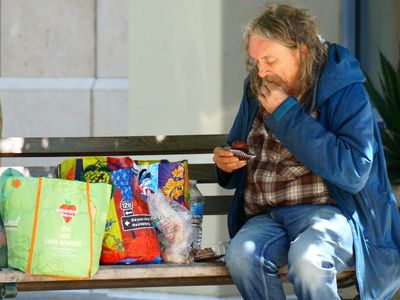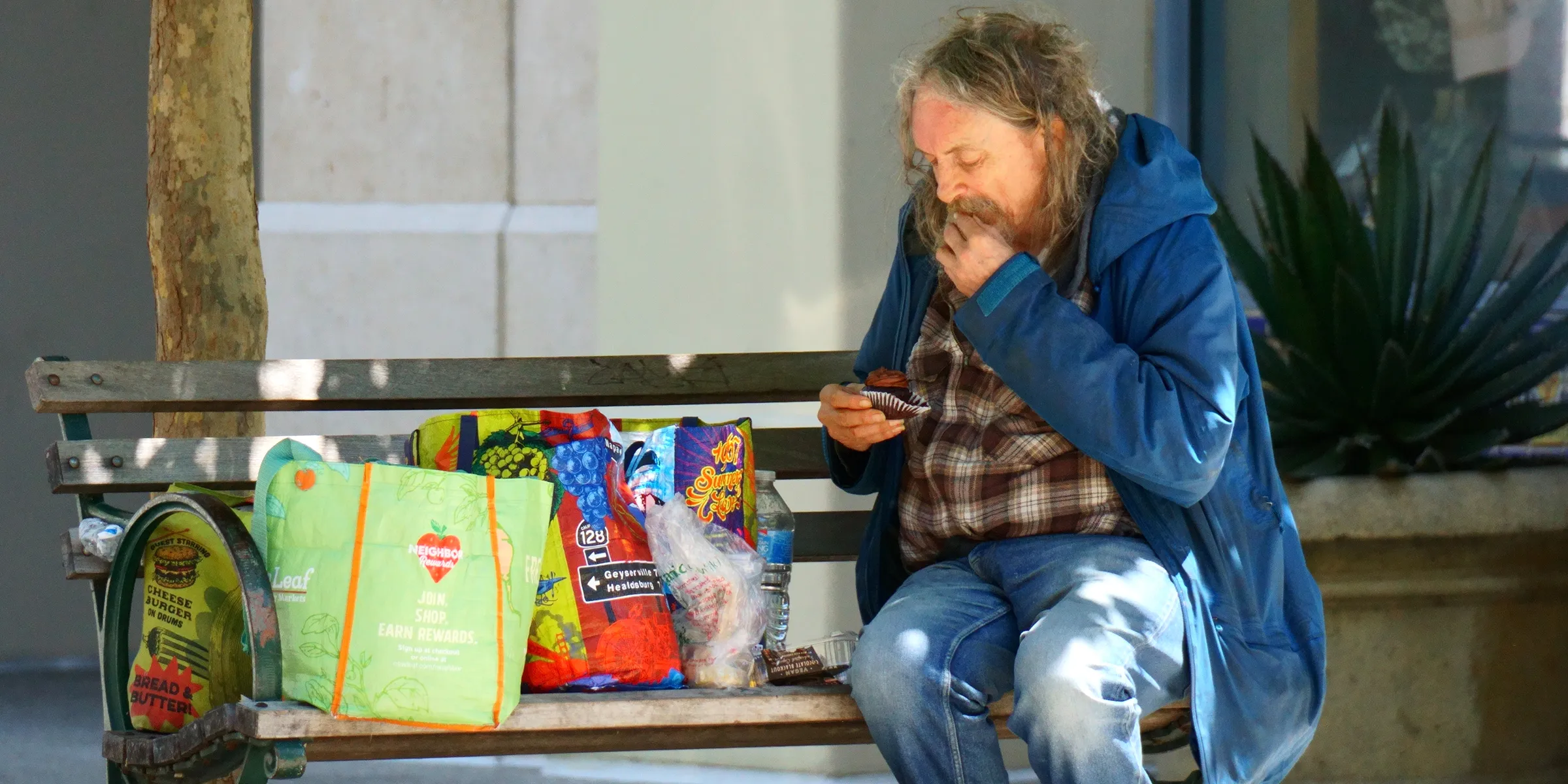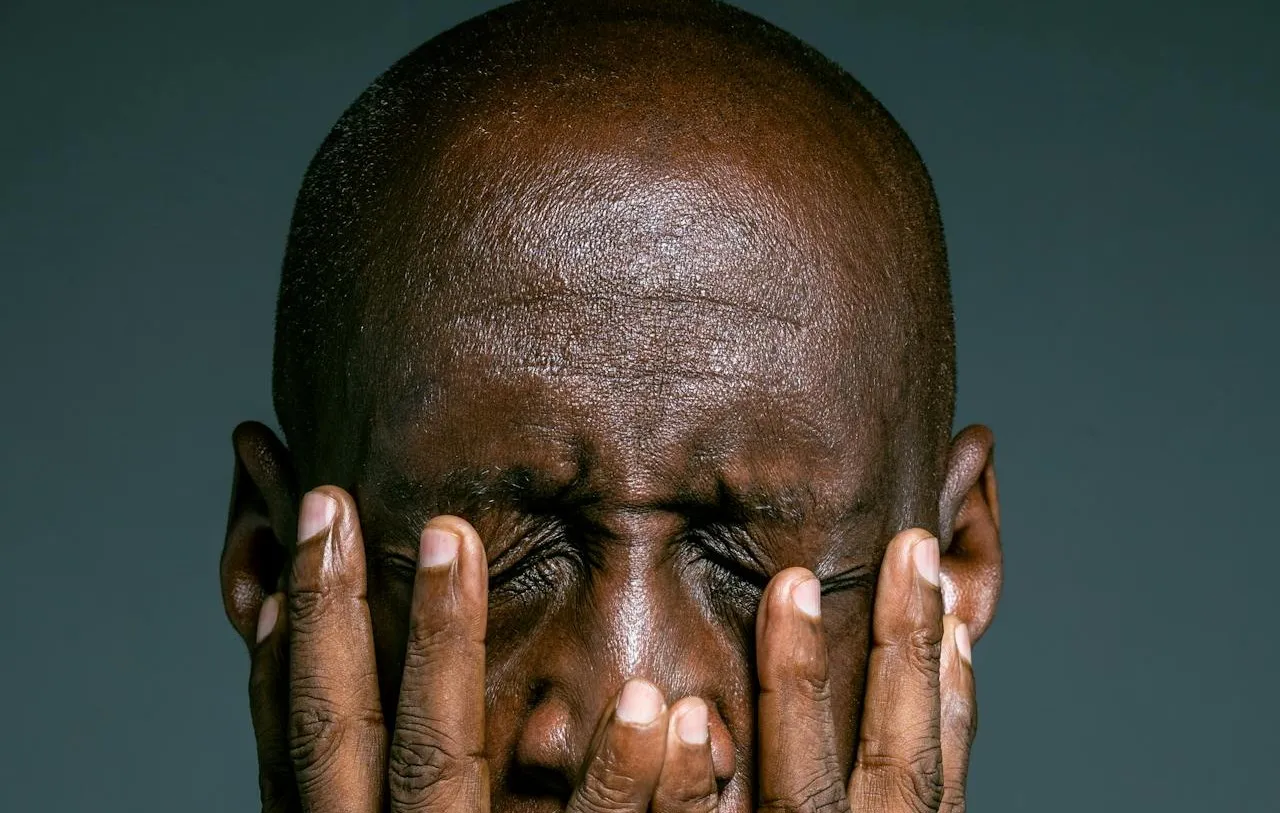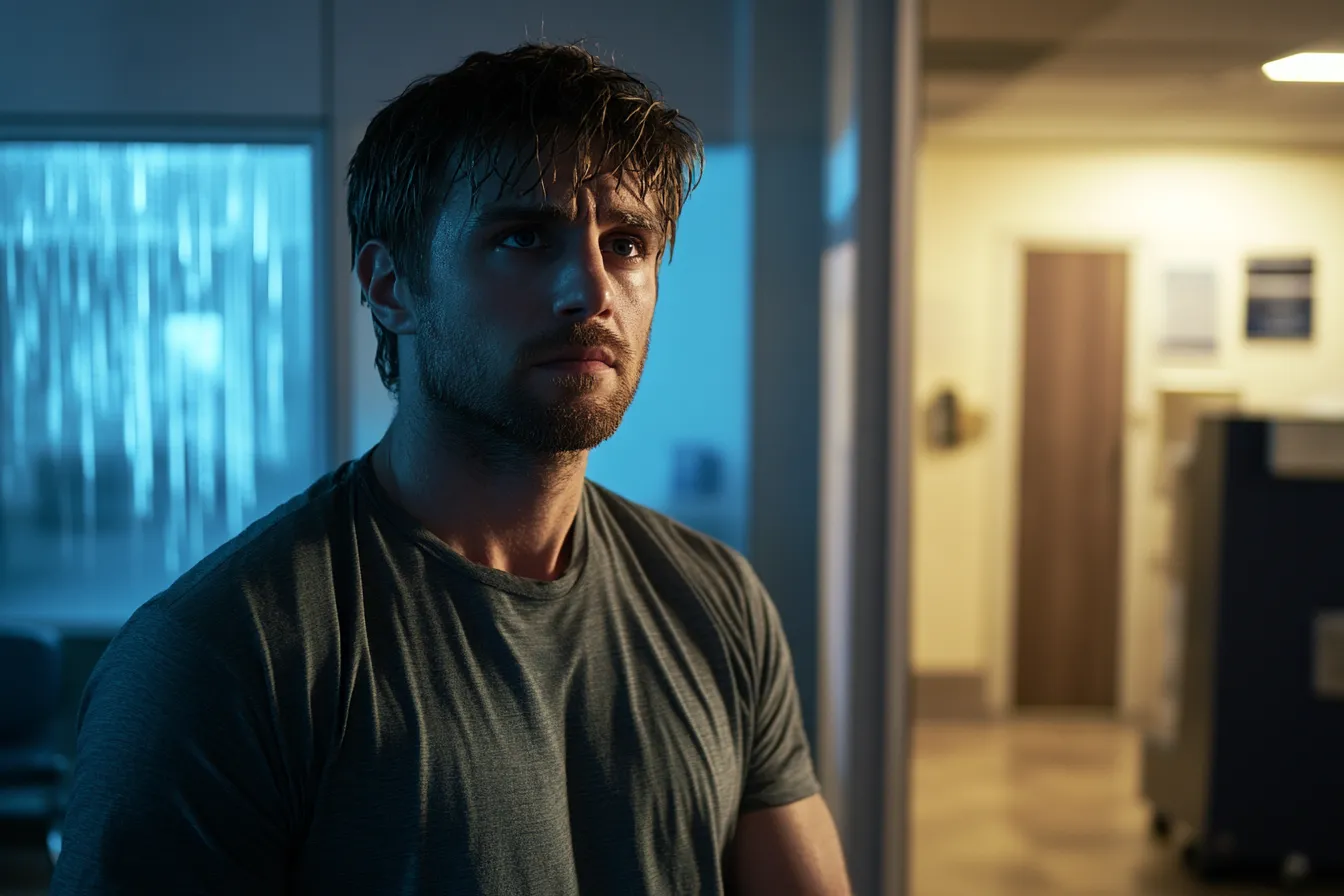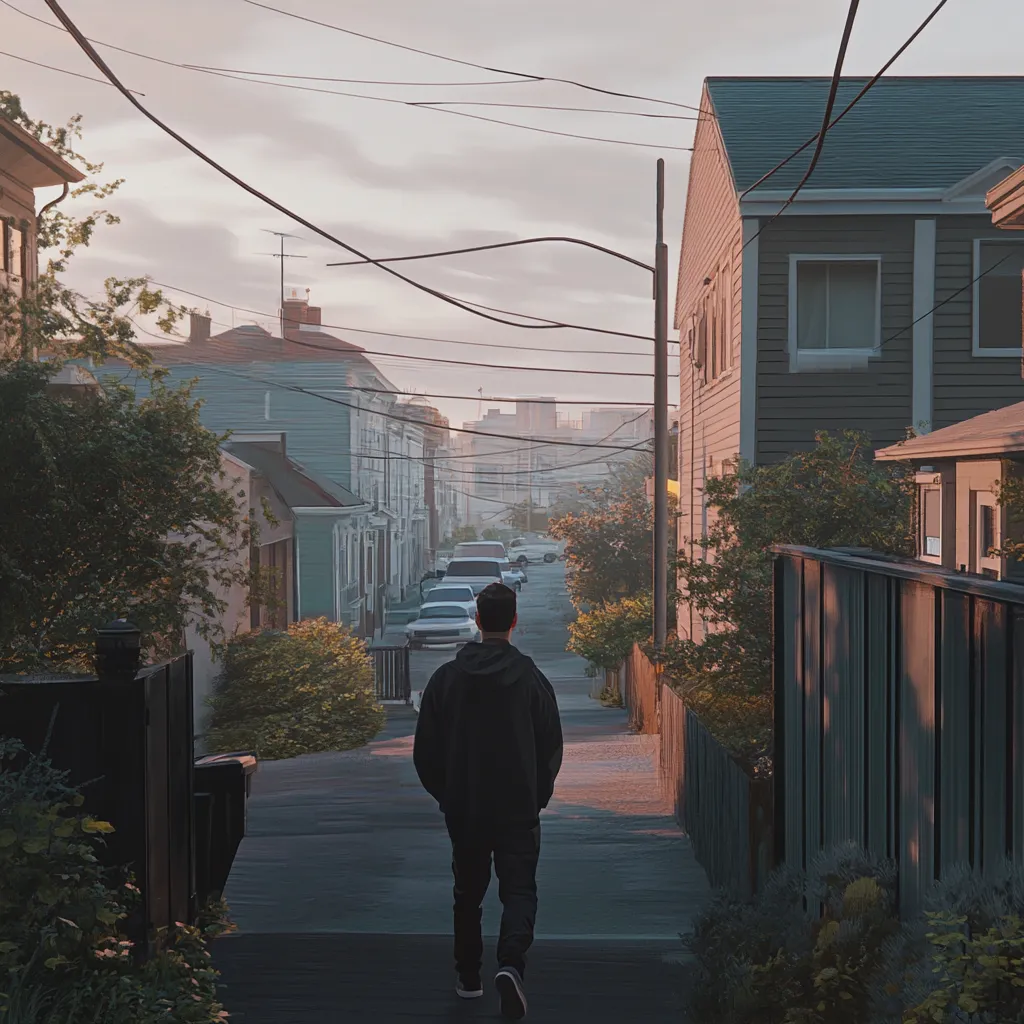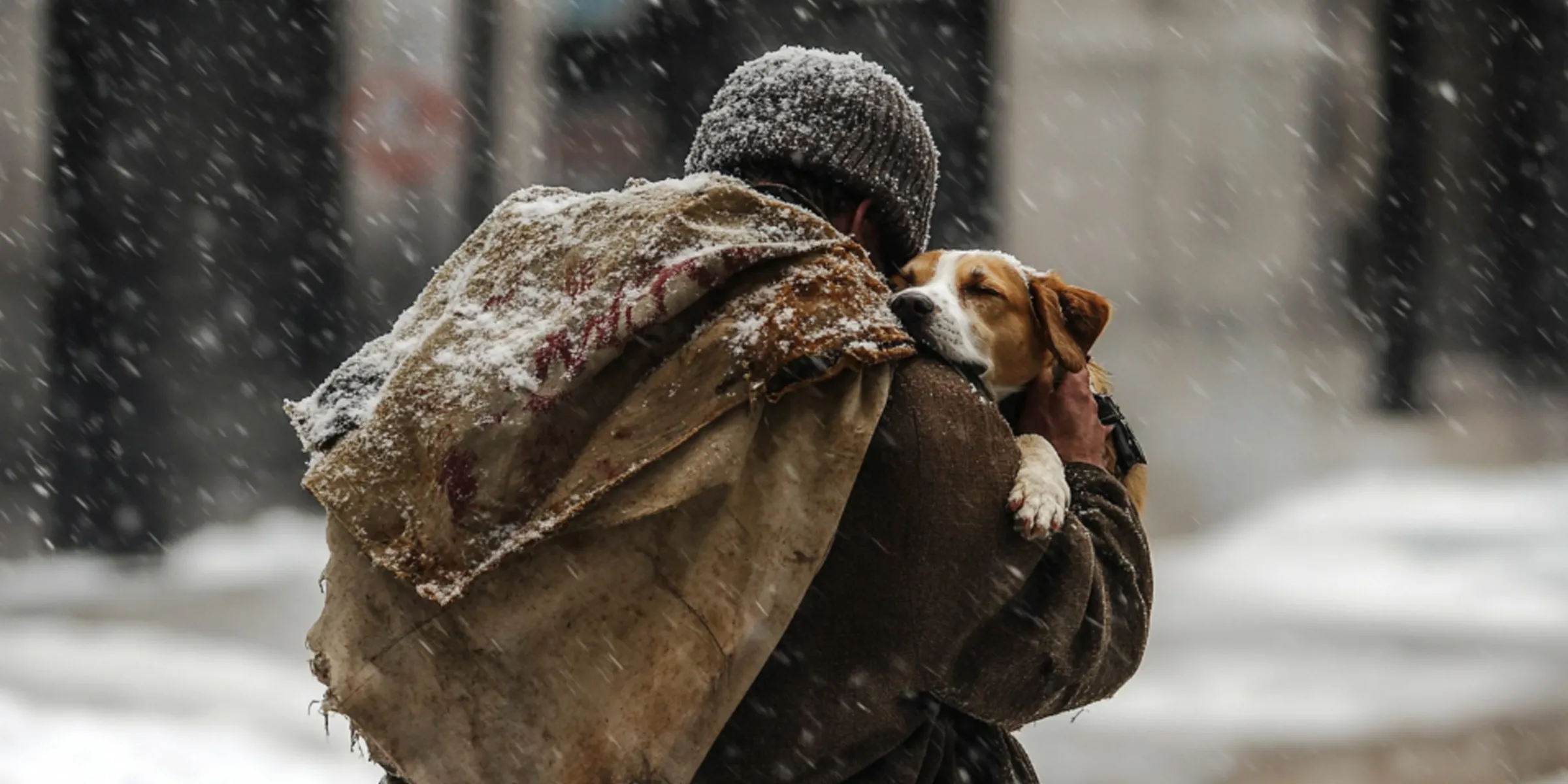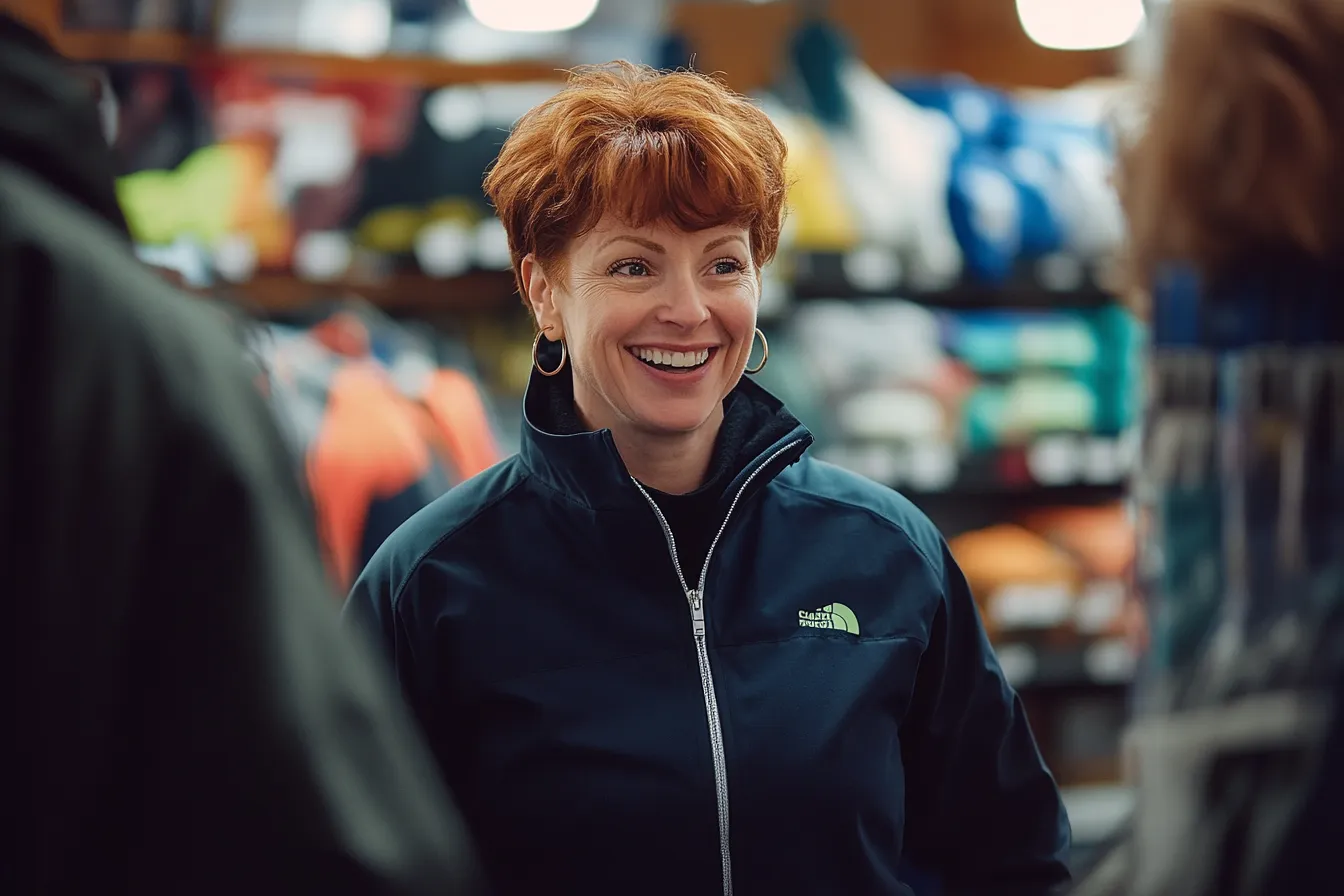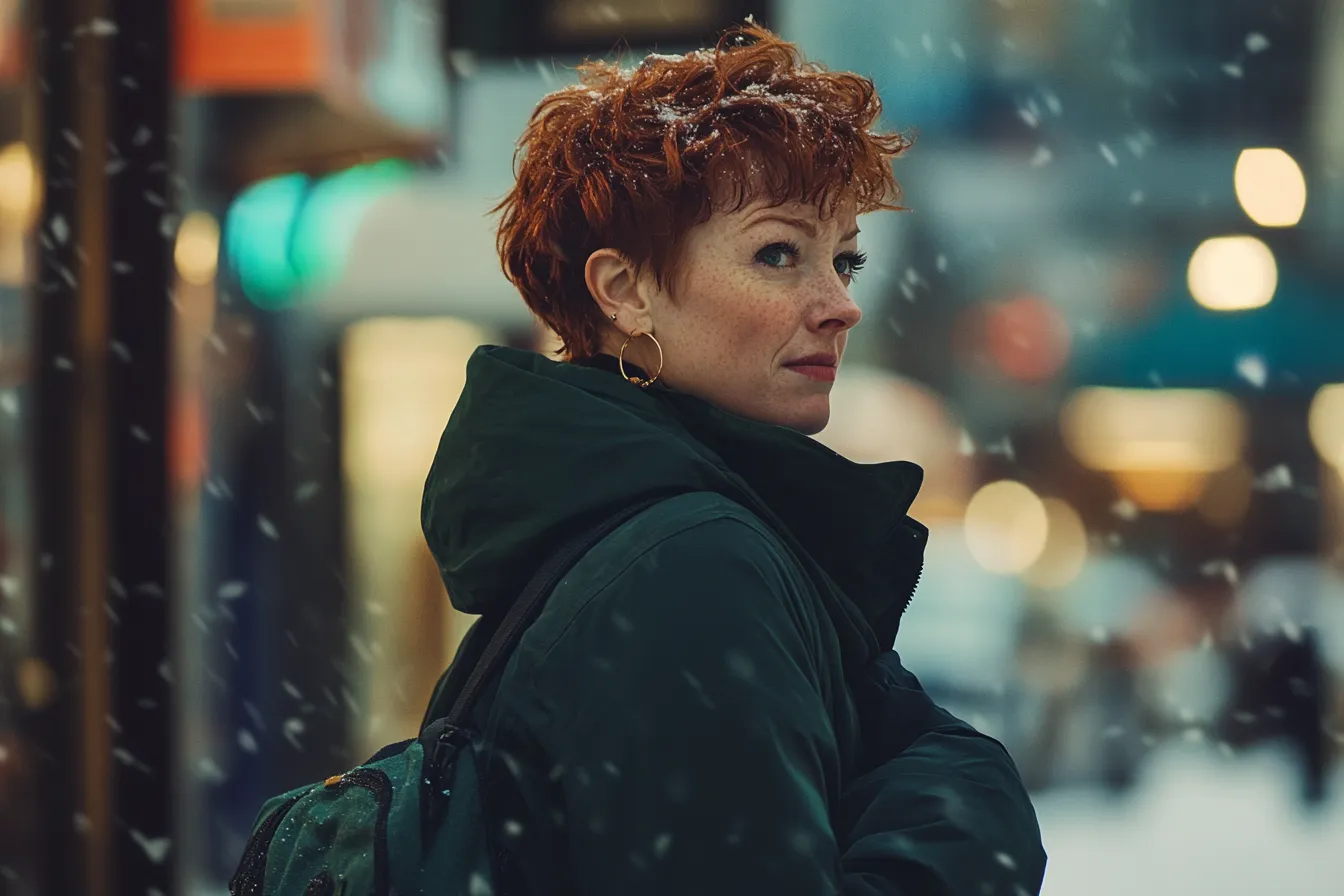Disabled Homeless Man Gave His Wheelchair to a Poor Boy Who Couldn't Walk – 5 Years Later, the Boy Found Him to Repay His Kindness
A homeless, disabled street musician sacrifices his only support — his wheelchair — to a young boy who cannot walk, concealing his own pain. Five years later, the boy returns, walking confidently, with a gift that will alter everything.
I was performing in my usual spot in the city square when I first encountered the boy. My fingers moved instinctively over the flute holes, while my mind drifted, as it often did during my daily performances.
Fifteen years of living on the streets has taught me to find refuge whenever possible, and music was my escape from the constant ache in my back and hips. I closed my eyes and let the melodies take me away to a different time and place.
I used to work in a factory. The work was hard, but I enjoyed the activity, the way your body moves into a rhythm that feels almost like dancing.
Then the pain started. I was in my mid-40s, initially thinking it was just getting older, but when I began to struggle with my work, I knew I needed to see a doctor.
The doctor told me, "...a long-term condition that will only get worse over time. Especially with the kind of work you do. There are medications to help manage the pain, but unfortunately, no cure."
I was shocked. I asked my supervisor to reassign me to another role in the factory.
"I could do quality control or help check shipments," I suggested.
But my boss shook his head. "Sorry, you're a good worker, but our policy states we can't hire people for those roles without certification. The higher-ups wouldn't approve it."
I clung to my job as long as I could, but eventually, I was dismissed because I was considered incapable of doing my tasks. By then, everyone at work knew about my condition and the pain I endured.
On my last day, they gave me a gift I have valued ever since: my wheelchair.
A child's voice snapped me out of my thoughts, pulling me back to the present.
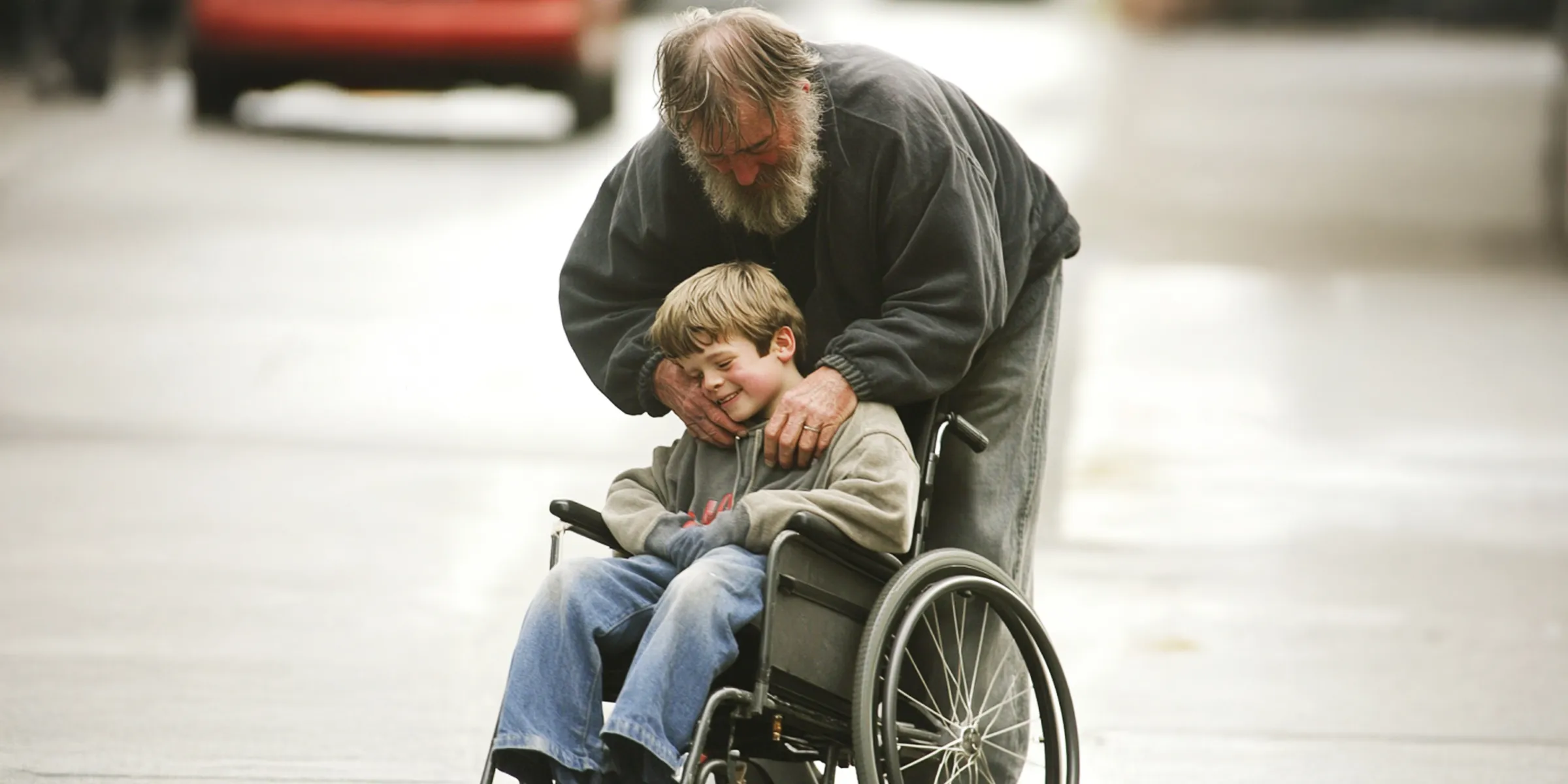
"Mama, listen! It's so beautiful!"
I looked up to see a small crowd gathered, including a woman holding a boy of about eight.
The boy's eyes shone with amazement as he watched my fingers move across the flute. His mother’s face showed tiredness, but as she saw her son's joy, her expression softened.
"Can we stay a little longer?" the boy pleaded, tugging at her worn jacket. "Please? I've never heard music like this before."
She adjusted her hold on him, trying to hide her fatigue. "Just a few more minutes, Tommy. We need to get to your appointment."
"But Mama, look how his fingers move! It’s like magic."
I put down my flute and motioned towards the boy. "Would you like to try playing? I can teach you a simple tune."
Tommy’s face fell. "I can't walk. It hurts too much."
His mother’s arms wrapped around him tighter.
"We can't afford crutches or a wheelchair," she said softly, eyes filled with worry. "So I carry him everywhere. The doctors say he needs therapy, but..." Her voice trailed off as she looked away.
Seeing them, I recognized my own story. The pain that never leaves, the fight to keep dignity, the way people look right past you if you're poor and disabled.
But I also saw in Tommy’s eyes a glimmer I had lost long ago: hope. That spark of happiness when listening to the music reminded me why I started playing.
"How long have you been carrying him?" I asked, though I already knew the answer.
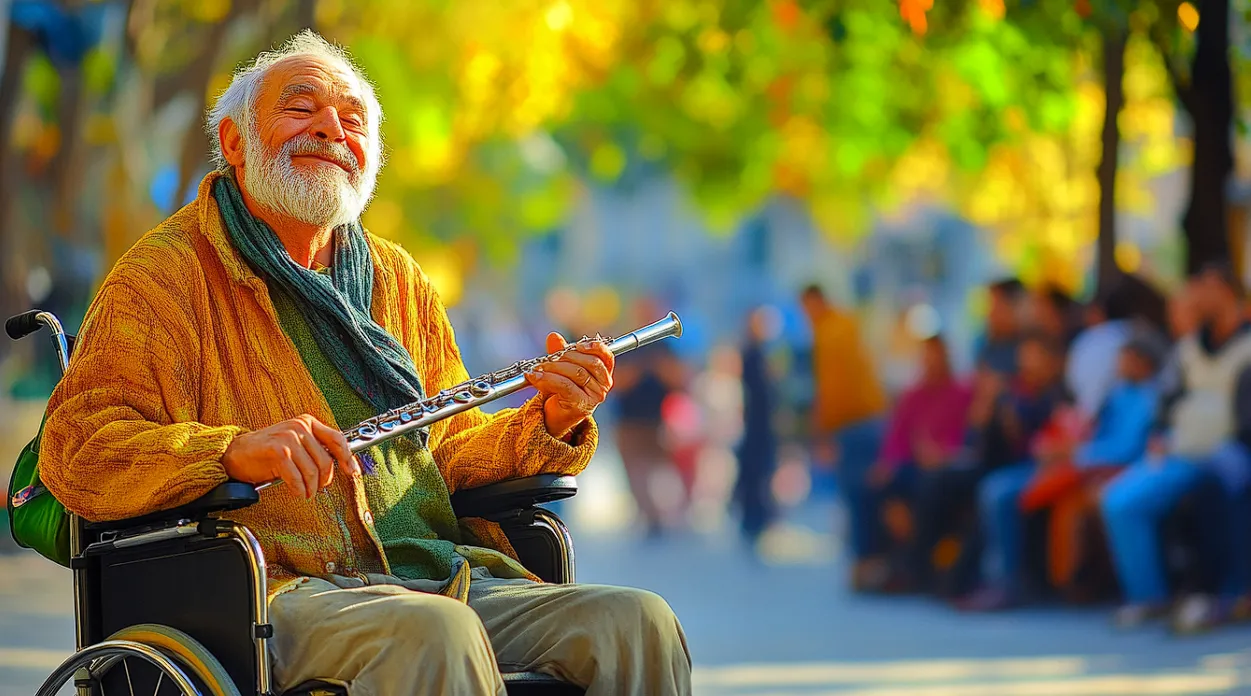
"Three years," she whispered.
I remembered my last day at work and the life-changing gift my coworkers had given me. I decided what I must do.
Without hesitation, I grasped the arms of my wheelchair and pushed myself to stand. Sharp pain shot through my spine and hips, but I managed a hopeful smile.
"Take my wheelchair," I offered. "I don’t really need it. It’s just an extra. I’m not disabled. But it could help your boy, and you."
"Oh no, we couldn’t..." the mother began to protest, shaking her head.
Looking her in the eyes, I sensed she doubted me. I smiled wider and pushed my chair toward them.
"Please," I pressed. "It would make me happy knowing someone who needs it uses it. Music isn’t the only gift we can give."
Tommy’s eyes widened. "Really, sir? You mean it?"
I nodded, struggling to speak through the pain, barely able to hold my smile.
His mother’s eyes filled with tears as she gently helped Tommy into the wheelchair.
"I don’t know how to thank you. We’ve asked for help many times, but nobody..."
"Your smile is enough," I told Tommy, who was already experimenting with the wheels. "Both of your smiles."

Tears blurred my vision as I watched them leave. I moved slowly to a nearby bench and sat down, pretending I wasn’t suffering from the effort.
That was five years ago, and time has not been kind. Moving around on crutches has worsened my condition.
The pain is constant now, a sharp ache in my back and legs that dominates my awareness as I walk from my basement beneath an abandoned house to the square.
But I continue playing. It no longer blocks the pain like it once did, but it keeps me sane.
I often think of Tommy and his mother, hoping my gesture made a difference. Sometimes, in quiet moments, I imagine Tommy rolling through a park or school corridor in my old wheelchair, his mother standing proudly.
Then, one day, everything changed.
I was playing an old folk song, one my grandmother taught me, when a shadow blocked my view of the cup.
Looking up, I saw a well-dressed young man standing before me, holding a long package under one arm.
"Hello, sir," he said with a familiar smile. "Do you remember me?"
I squinted at him, feeling my heart race with recognition. "You?"
Tommy’s smile grew wider. "I wondered if you'd recognize me."
"But how..." I pointed at his steady stance. "You’re walking!"
"Life has a funny way of working out," he said, sitting beside me on the bench. "A few months after you gave me your wheelchair, we learned that a distant relative left me a trust. Suddenly, we could afford proper treatment. It turns out my condition can be fixed with the right care."
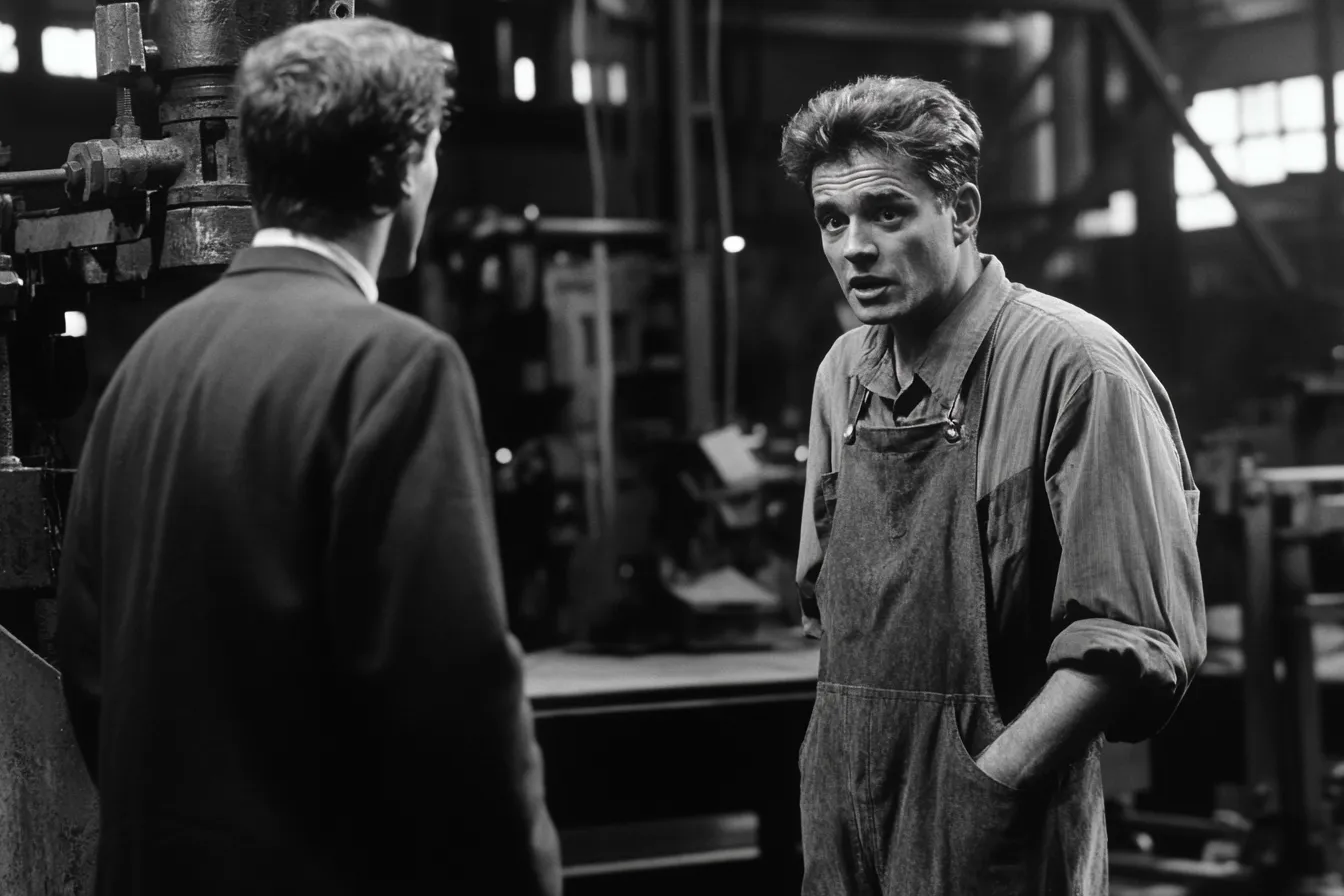
"Your mother?"
"She started her own catering business. She’s always loved cooking, but she never had the energy before. Now she’s making her dream come true." Then, shyly, he held out the package he carried. "This is for you, sir."
I unwrapped the brown paper and gasped — inside was a sleek case for a flute.
"This is my way of saying thank you for your kindness," he explained. "For helping me when nobody else would."
"I... I don’t know what to say," I muttered. "This is too much."
"No, it isn’t. My happiness is because of you," Tommy said, wrapping his arms carefully around me. "The wheelchair didn’t just help me move. It gave us hope. It made us believe things could get better."
Tommy didn’t stay long after that. I packed the flute case into my small bag and kept going with my day.
That night, back in my basement, I opened the case carefully. Instead of a flute, I found stacks of money, more than I’d ever seen. On top was a note written by hand:
"PAYMENT FOR THE PAIN YOU HAVE ENDURED ALL THESE YEARS BECAUSE OF YOUR KINDNESS. THANK YOU FOR SHOWING US THAT MIRACLES STILL HAPPEN."
I sat there for hours, clutching the note, recalling the pain of every step I took since giving away my wheelchair.
But I also remembered Tommy’s smile, his mother’s tears, and how their lives had changed.
The money meant more than just financial relief. It was proof that small acts of kindness can cause unexpected ripples.
"One act of kindness," I whispered to myself, watching the fading light outside my window. "It can start a chain of events."
